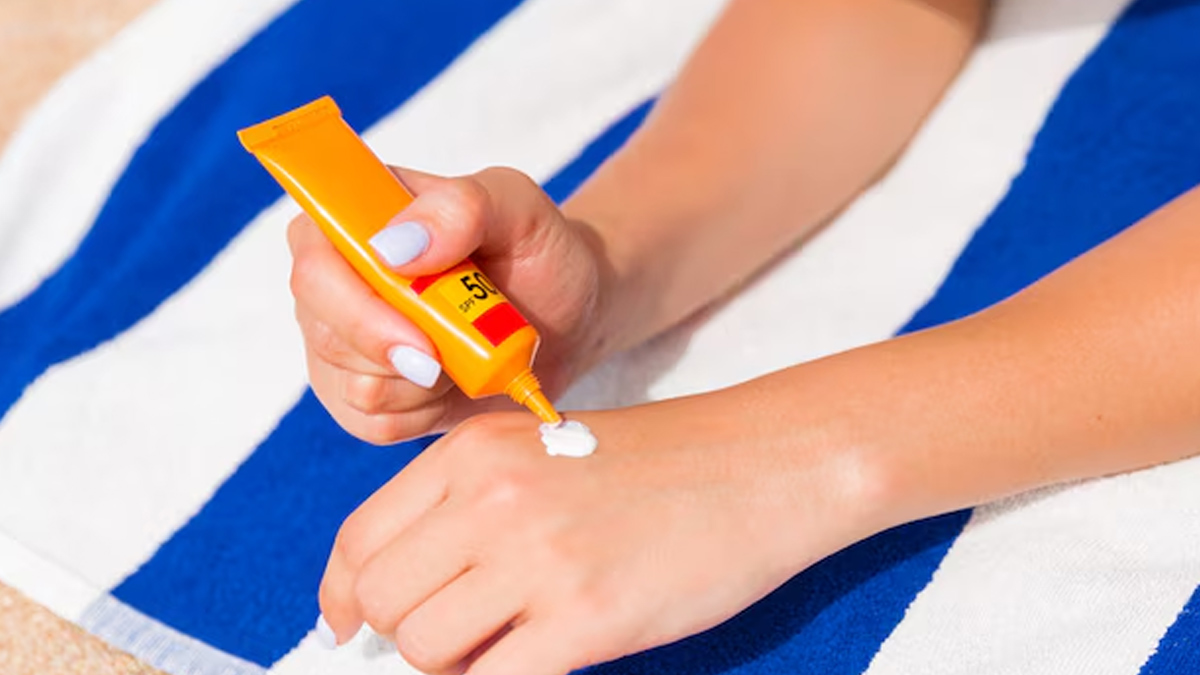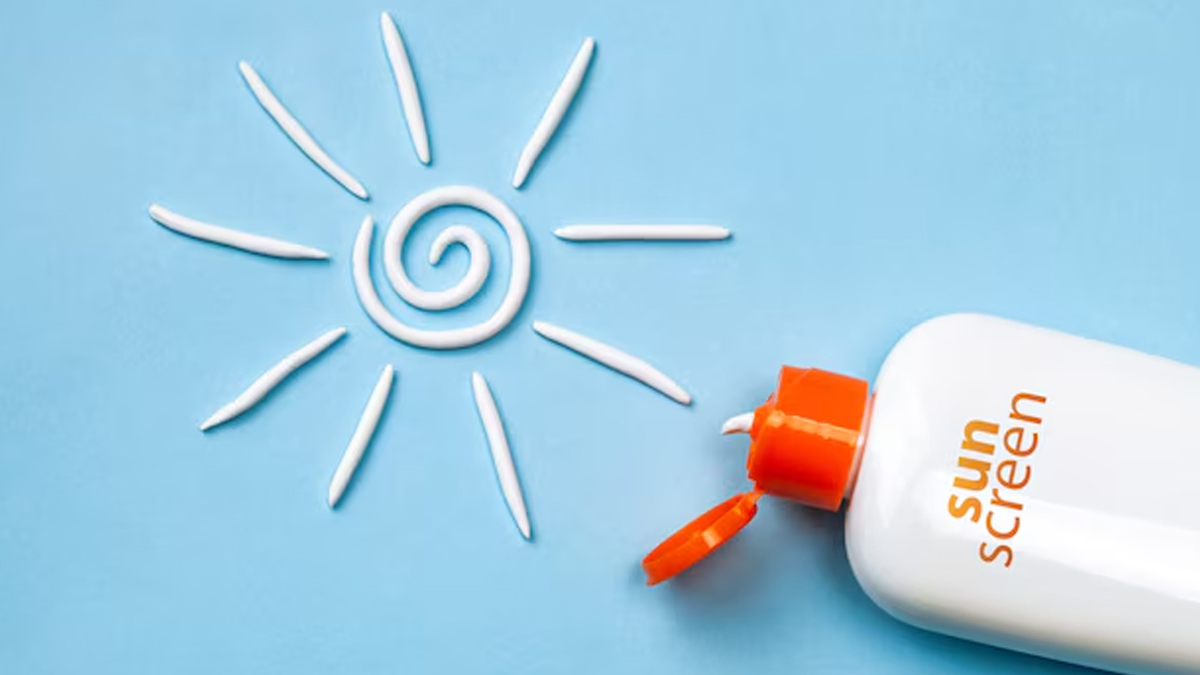India's skincare market has witnessed explosive demand for sunscreens and is now the second-most-purchased personal care product after face washes. The growing demand for high-SPF formulations and the increasing popularity of spray and stick sunscreens reflect a surge in sun safety education and awareness. Unfortunately, the positive side of this trend is also paired with many new surfacing sunscreen brands that may be more of a practical textured product with dubious quality controls, safety testing or regulatory compliance.
This results in a pressing question: Is your sunscreen doing what it is meant to do, or is it putting your skin at risk? We spoke to Dr Saurabh Arora, Managing Director, Auriga Research, Delhi, who answered how to check if your sunscreen is safe.
Tips To Check If Your Sunscreen Is Safe To Use
Here are some steps to determine whether your sunscreen is safe and effective.
Top Stories
Beware of Misleading SPF Labels

One of the ongoing issues the sunscreen market faces is exaggerated or misleading SPF (Sun Protection Factor) claims. "Brands sell products claiming an SPF of anywhere from 10 to 100+, often with questionable proof. The truth is that proper SPF testing is costly and must be performed with human subjects, as per the ISO (International Organization for Standardization) testing requirements. Many new or small brands skip this testing," according to Dr Arora.
When one chooses a sunscreen with SPF 60 on the label, one might anticipate getting great protection. Without proper testing, a sunscreen labelled SPF 60 may offer protection equivalent to SPF 20 or even provide little to no protection. This misrepresentation can lead to sunburn, premature ageing, and potentially, over the long term, skin cancers due to inadequate UV protection.
As a consumer, you should always seek out products that at least state their SPF testing method or are assured by a reliable certifier. If this information is not provided, it's a sign that the product may not be credible.
Also Read: Protect Your Kid's Skin From Sun Damage: Why Choose Mineral Sunscreen Over Chemical?
Check for Regulatory Compliance and Batch Testing
According to India's Drugs and Cosmetics Act, all cosmetic products, and sunscreens are no exception, must comply with the Bureau of Indian Standards (BIS) standards and you are mandated to undertake the following safety tests:
- Microbiological testing is required so that it is free of deleterious bacteria/fungi.
- Tests for heavy metals and toxic chemicals to evaluate the presence of banned substances, such as mercury and lead.
- Stability tests ensure the product remains efficacious and safe over its shelf life.
"Although they are legally required, and major companies normally can afford to test every batch as they usually have reasonably sized and predictable batches, many brands, especially those leveraging online sales through influencer marketing, often fail to follow through with compliance measures. Often, one-off newcomers fail to consider or are unaware of registration, testing, or labelling requirements," added Dr Arora.
A recent probe by the Central Drugs Standard Control Organization (CDSCO) found high amounts of mercury in various cosmetics, raising yet more alarm and underscoring the need for better regulation. Prolonged contaminated exposure poses serious health outcomes over time, such as neurological damage and kidney damage.
Consumers have a right to know what they're getting. Look for brands that openly share batch test reports or certification, either on their website or upon request.
Also Read: Sensitive Skin And Sunscreen: The Ingredients You Need To Watch Out For
Understand the Ingredients And Their Limits

Where a sunscreen's safety is concerned, the SPF is only part of the picture and what the sunscreen is made up of is also important. Many chemical UV filters, including oxybenzone, homosalate, and octocrylene, exist under scrutiny internationally, that have purported health and environmental risks. While not completely banned, many of these ingredients use levels of human or environmental safety regulations.
“In India, some sunscreens still contain ingredients like Para-Aminobenzoic Acid (PABA), which is rarely used globally due to its potential to cause skin irritation. Aside from in North America, PABA is rarely used worldwide due to its potential to cause skin sensitivity. If these ingredients are not used within the allowed concentrations or if their presence is not tested and confirmed, they may harm the skin; however, the consequences may not end there,” added Dr Arora.
Consumers should regularly examine ingredient labels. If any of the names are unfamiliar, look up the safety status. Also, look for sunscreens labelled 'dermatologically reviewed' or 'non-comedogenic.' However, these claims should ideally be supported by test data.
Safety for Skin and the Planet
Although personal safety comes first, there is also increased awareness of the environmental effects of sunscreen products. Some chemical filters are known to impact marine ecosystems, especially coral reefs, by introducing non-biodegradable compounds and nanoparticles. Internationally, this has spurred the rise of 'reef-safe' or 'reef-friendly' certifications.
As consumers in the Indian market become more aware, it’s important to analyse not only what sunscreen does for your skin, but what it is doing to the planet. One of the easy decisions we can make is to use a product with no toxic ingredients that harm the environment.
As Indian consumers become more eco-conscious, it's crucial to consider the broader impact of sunscreen - not just on your skin, but on the planet too. A simple step is to opt for products with environmentally friendly ingredients that don't harm the planet."
In the end, this responsibility rests with both manufacturers and consumers. Brands must be sure their goods will not be harmful and will be tested, with claims made honestly. Meanwhile, consumers should remain aware and inquisitive and hold companies to their word.
Bottomline
Dr Arora concluded, "While considerations of SPF legitimacy, ingredient safety, regulatory compliance, and environmental concern might seem tiresome at times, such awareness will help you become a more thoughtful pair of consumers, thus ensuring that what sits on your skin will perform sunshine protection."
[Disclaimer: This article contains information provided by an expert and is for informational purposes only. Hence, we advise you to consult your professional if you are dealing with any health issue to avoid complications.]
